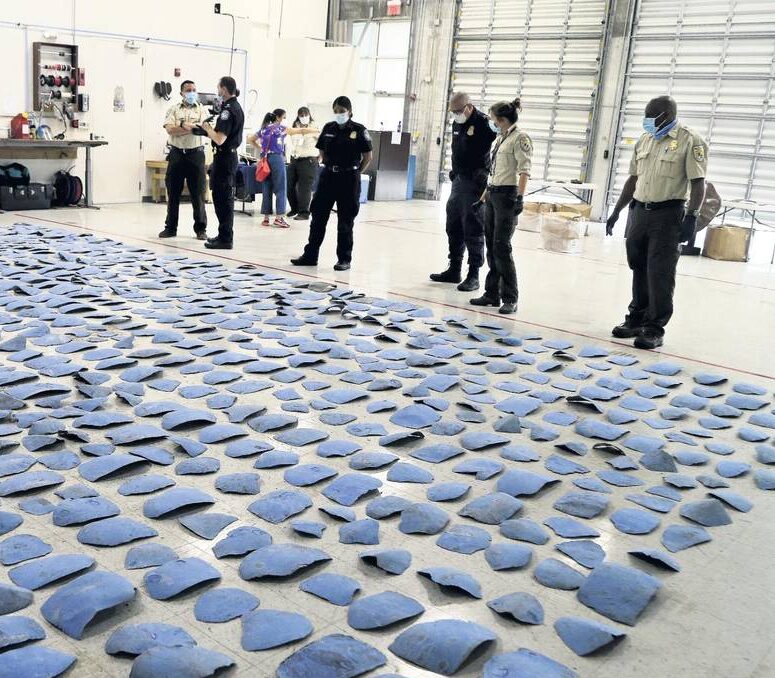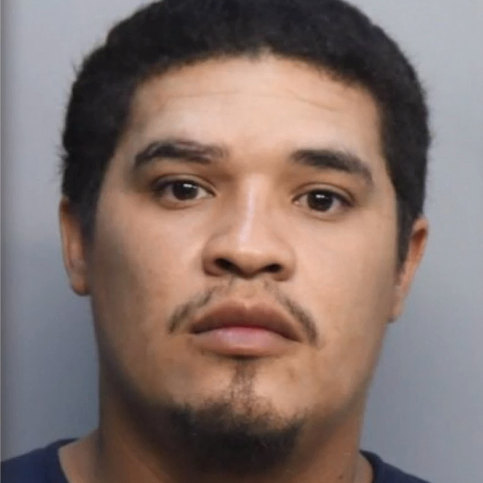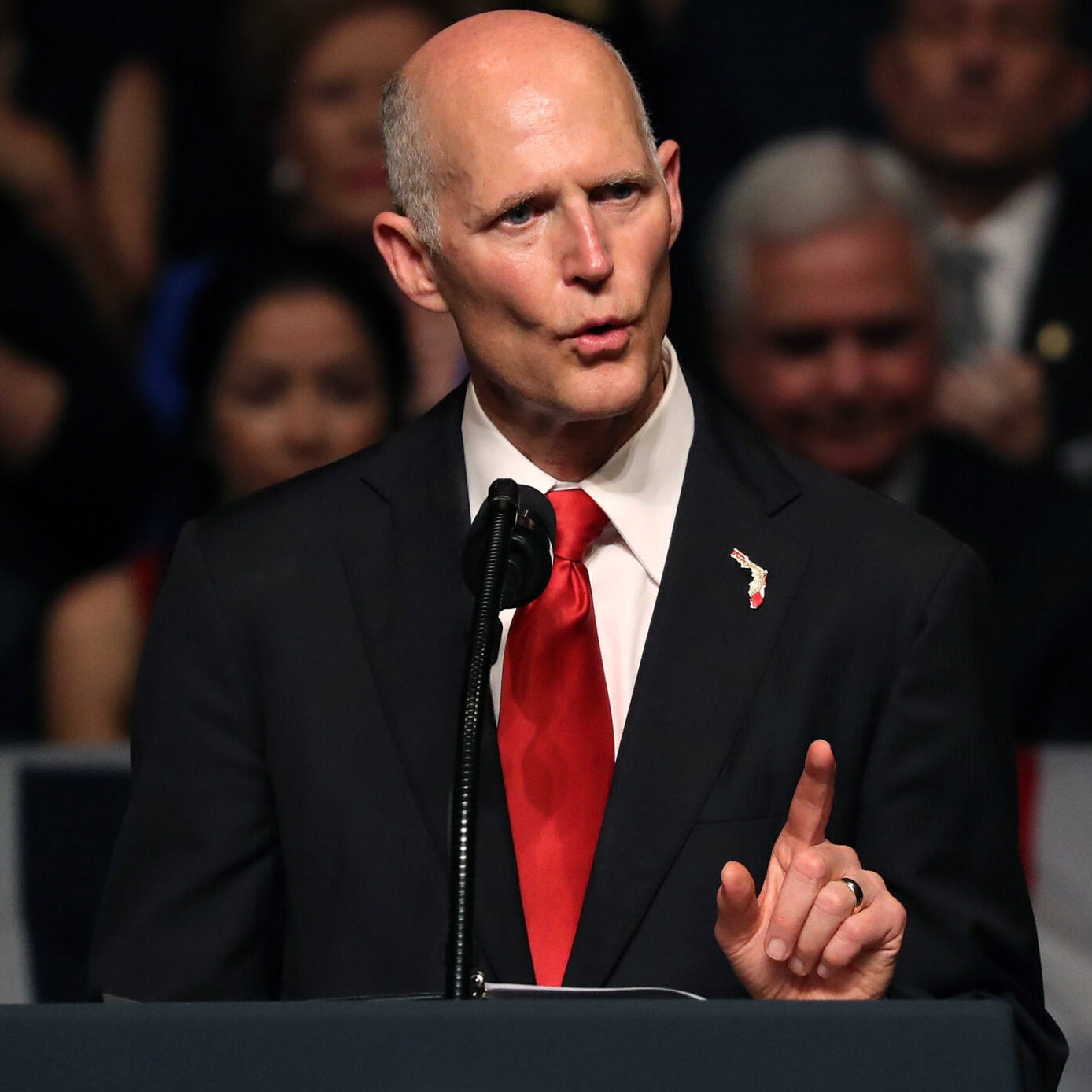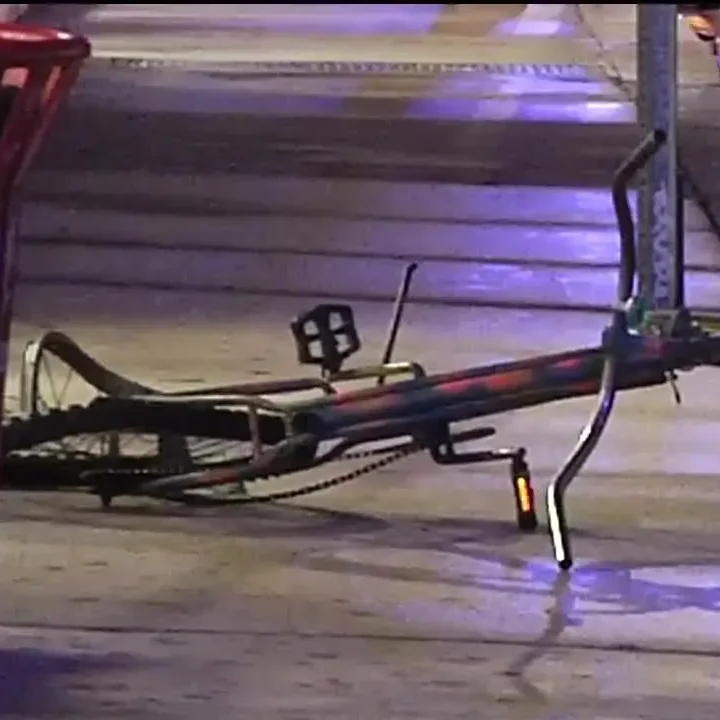The sight of over 1,400 pieces of sea turtle shells, most about the size of dinner plates, on the floor of a warehouse near Miami International Airport was a sobering reminder that South Florida is a major hub for the illegal wildlife trade.
US Customs and Border Protection seized the shipment of endangered Hawksbill and Green sea turtle shells at an air cargo warehouse in late November last year — one of the largest seizures of turtle shells ever in the U.S..
Five large boxes full of scutes — the sections of a sea turtle shell — had arrived at Miami International Airport that day on a flight coming from the Caribbean, and were scheduled to be loaded on another flight to Asia a day later, CBP said.
The shell pieces from about 100 turtles were covered with a chalk-like blue paint, and registered in a customs manifest as “plastic recycle” in an attempt to disguise the items that are illegal to sell and export in the United States and most nations. But looking closely, the distinctive brown, orange and light beige hues of hawksbill shells were visible underneath the powdery periwinkle coating.
“Wildlife trafficking is a serious crime that impacts species at home and abroad,” said Aurelia Skipwith, Director of the U.S. Fish and Wildlife Service. “Sea turtles are critical members of healthy ocean ecosystems. Unfortunately, they are also severely impacted by the illegal wildlife trade.”





